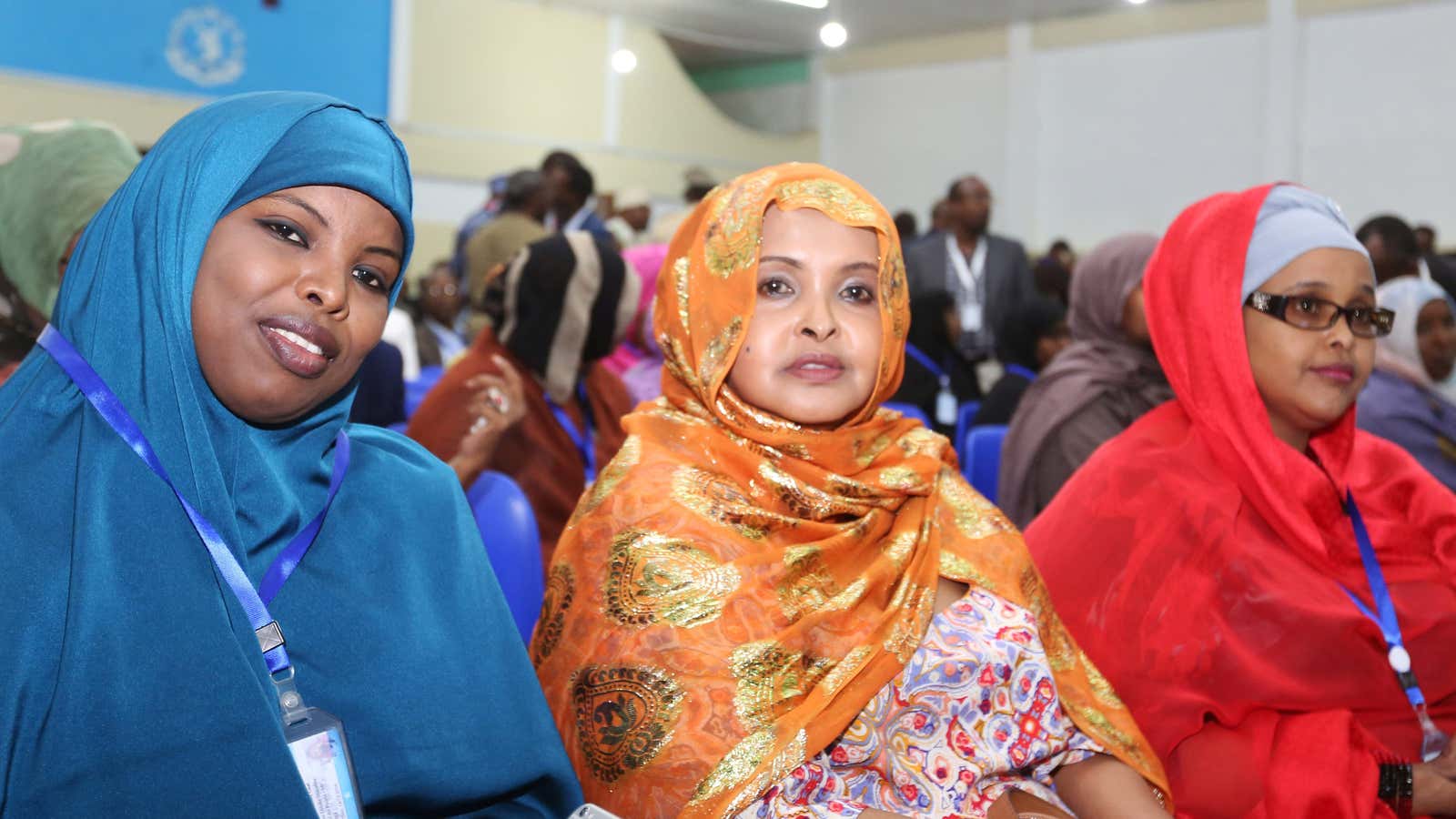On March 1, Somalia’s parliament approved the appointment of new prime minister Hassan Ali Khaire, a political newcomer. The 49-year-old Somali-Norwegian is a former humanitarian worker and oil executive.
Khaire isn’t the only novice to have entered the fray of Somali politics. The newly elected parliament is filled with entrepreneurs, media managers, civil society members, fashion designers, and even university students. Many members are young, hold dual citizenships, and hail from diverse backgrounds.
Almost 60% of the 275 elected members of the lower house of parliament—the country’s 10th parliament was sworn in at the end of December—were between the ages of 25 and 50, according to the United Nations Development Programme, which supported the electoral process. Almost half the 54 members of the upper house of parliament were under the age of 50.
Somalia doesn’t have universal suffrage—lawmakers vote for the country’s president. The parliamentarians’ recent election of Mohamed Abdullahi Farmaajo as Somalia’s ninth president has created a renewed sense of hope and optimism in one of the world’s most fragile states.
The elections also saw a significant increase in female representation. In the last parliament, Somali women held less than 14% of the seats, a figure that has now increased to 24%, according to Wakiil, an online database promoting transparency in the electoral process. The increase in the lower house alone puts Somalia ahead of other African countries like Kenya (where 19% of lower-house members are women) and Nigeria (5.6%), according to the Inter-Parliamentary Union.
The achievement was thanks to a quota system that reserved 30% of parliamentary seats for women candidates contesting for either of the two houses. The measure had received stiff challenges from clan elders and also from religious leaders, who dubbed the process foreign-led. Others saw it differently. This “was a massive victory for Somali women,” says Asha Gelle Dirie, the chairperson of the Committee of Goodwill Ambassadors, which worked to secure the seats.
But the nascent government already faces tremendous challenges. Somalia just declared a national disaster due to prolonged drought, and 6.2 million people are in need of urgent humanitarian aid. The country’s security also faces repeated attacks from terrorist group al-Shabaab, and it is widely considered the most corrupt country on Earth.
Sagal Bihi, a newly elected member of parliament, says young parliamentarians will need to work harder, seek guidance, and pass laws designed to help the country’s people.
“We need to work with confidence, with fearlessness, and courage,” she says.
